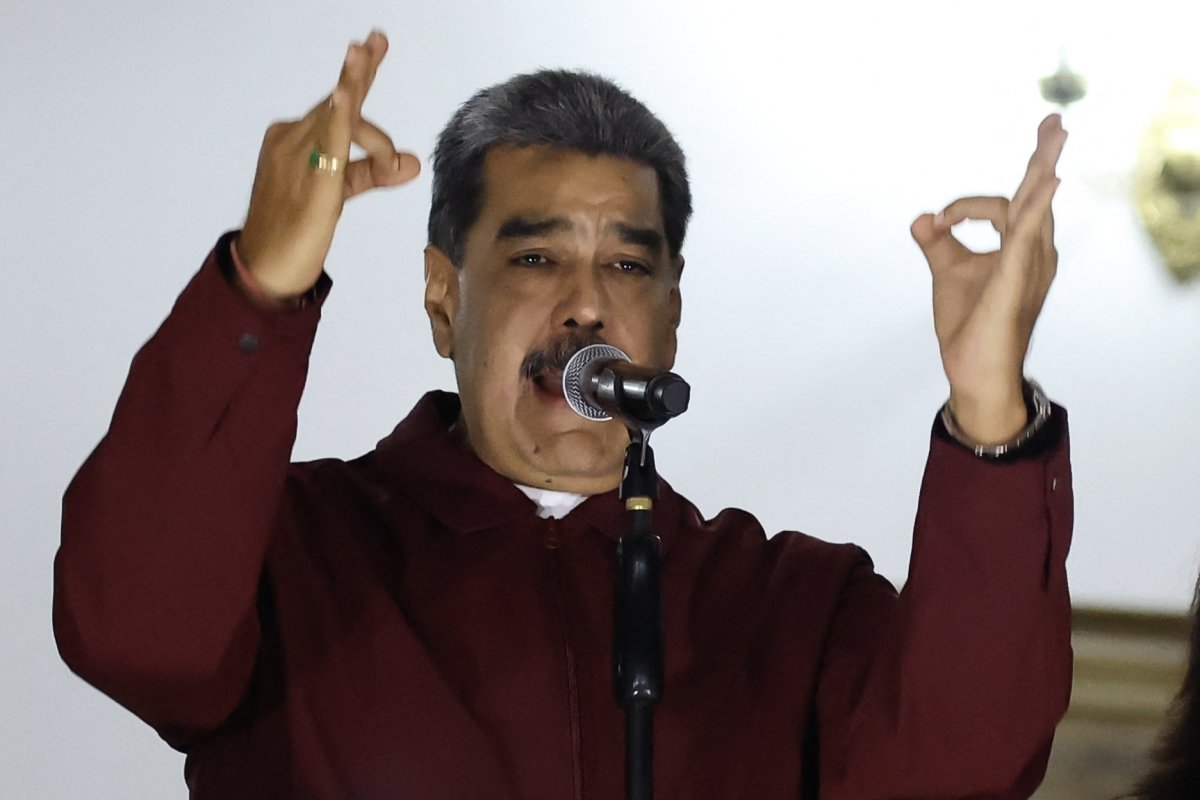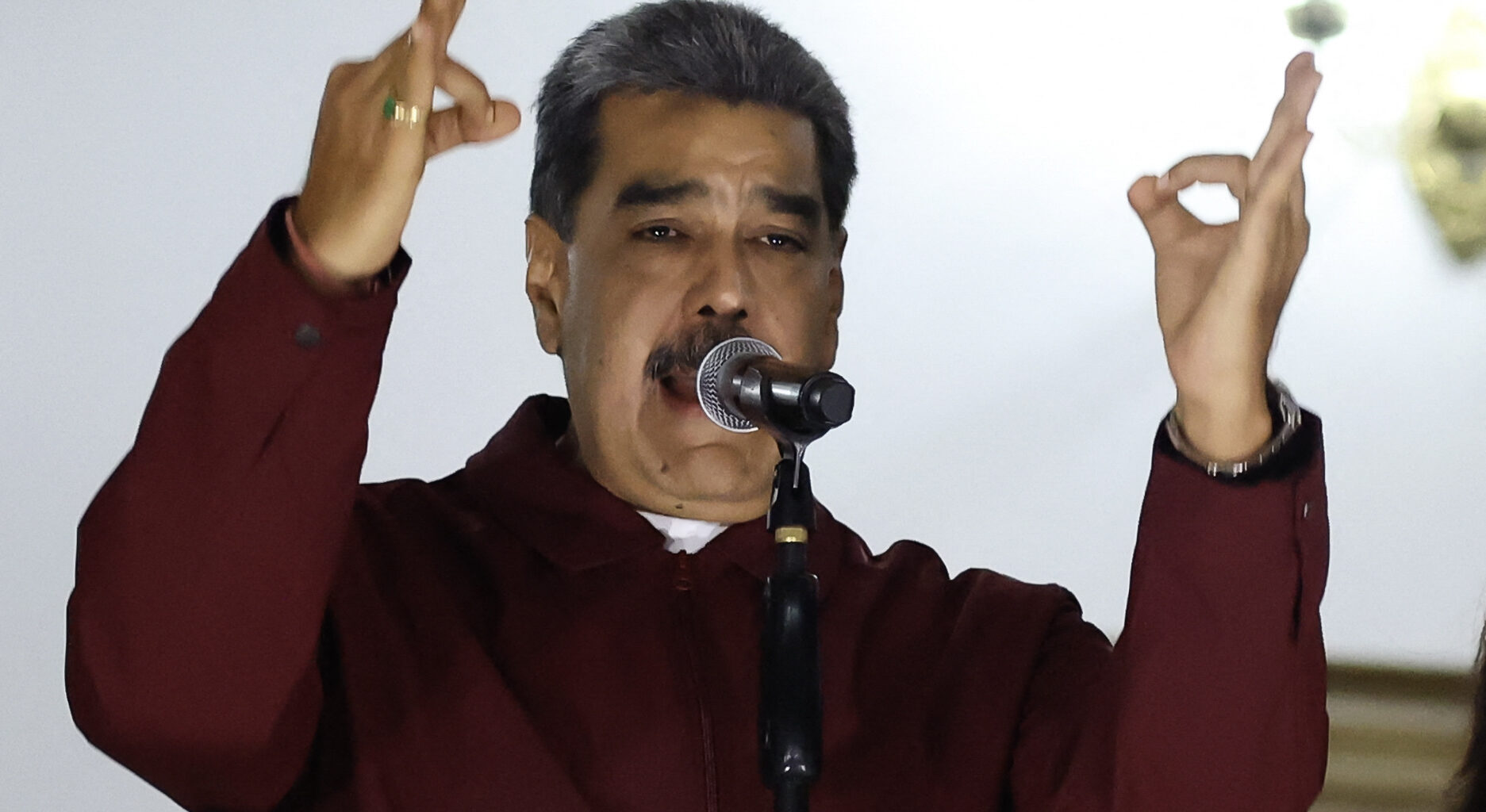President Donald Trump‘s recent decision to deploy eight warships including a nuclear submarine near Venezuela is the right one. Some might argue that the United States is risking plunging itself into an ethically questionable war, but that is unlikely. Rather, this is a targeted effort to support a legitimately elected Venezuelan leadership against a fictitious president running a shadow narco-terrorist organization.
First, the Chavist regime of Nicolás Maduro is not operating like a real state or even a classic dictatorship. The international community has begun to recognize it as a criminal structure posing a security risk for the hemisphere. For 25 years, Chavism has co-opted Venezuela’s infrastructure for its own enrichment, persecuting journalists and opposition, wrecking the economy, and leaving its citizens in poverty. It has inundated the United States with cocaine, killing innocents along the way. Recent testimony in U.S. courts by extradited capos of the Mexican Sinaloa Cartel—Ismael Zambada and Pollo Carvajal—confirmed that from the start, the mafia was at the heart of Chavismo.

Nicolás Maduro gestures while speaking after results were released following municipal elections in Caracas, Venezuela, in the early morning of July 28, 2025.
Nicolás Maduro gestures while speaking after results were released following municipal elections in Caracas, Venezuela, in the early morning of July 28, 2025.
PEDRO MATTEY/AFP via Getty Images
According to the Venezuelan journalist Maibort Petit, who was present at Zambada’s New York recent confession, it can now be proven beyond a reasonable doubt that the Sinaloa Cartel has close business associations with the former FARC (Revolutionary Armed Forces of Colombia), a U.S. designated terrorist organization, and direct ties to Cartel de los Soles, the shadowy criminal organization operating in parallel to the Maduro regime.
“Nowhere else in the world would you see a state lend its branches specifically for the enrichment of criminal groups. Until you begin to treat Venezuela for what it is, an organization of institutionalized crime, you won’t understand it,” Maibort Petit said in an interview.
After several failed deals between the Biden administration and Maduro it’s clear that negotiating hasn’t worked. Lifting sanctions in exchange for a promise of free elections resulted in Maduro stealing the July 2024 presidential election, which the opposition candidate Edmundo Gonzalez won by a landslide.
The moment is ripe for Maduro’s fall, and meaningful retaliation is unlikely. Analysts in Colombia agree that Maduro’s internal military personnel are untrained, disloyal, and that many cannot be located. Maduro is isolated, both within his circles and internationally. With Russia preoccupied in Ukraine, and Iran with Israel, Maduro is left to fend for himself. His patrons in Cuba, Iran, and Russia will likely see this provocation by the United States as a show of strength, rather than an invitation to retaliate.
Eliécer Camacho Jiménez, former general of the Colombian National Police (the organization that works closely with the DEA on combatting drug trafficking in Colombia), told me there are growing divisions within Maduro’s circles. “Opposition forces could bring mercenaries in to extract Maduro. If Maduro exits, there would be an opportunity for Edmundo Gonzalez to organize a government in Venezuela,” he told Newsweek.
South America is buzzing with debates over whether Maduro should be exiled or imprisoned. Former Argentine Vice President Carlos Ruckauf said that Maduro should be imprisoned in the U.S. alongside the drug lord Joaquín “El Chapo” Guzmán.
Jiménez sees the presence of U.S. military near Venezuela as a defensive move. “Venezuela has allied with Iran, harboring anti-American terrorist groups like Hezbollah within its borders. They trade arms and send illicit products back to Iran to support the regime. For the United States, Venezuela could become a grave problem,” he said.
The military deployment near Venezuela is not a typical U.S. invasion or “regime change.” Unlike the ouster of Saddam Hussein, the use of the military as leverage to dismantle a criminal regime won’t leave Venezuela without leadership. Armando Duarte Galán, a professor of geopolitics at the Universidad del Externado de Colombia, told Newsweek the deployment is not configured for an “invasion,” but more appropriate for “extraction, or interdiction … and likely there’s a component of pressure.”
Venezuela has a unified and organized opposition that has been working tirelessly to prepare for this moment. They have an internationally-recognized president-elect. From her place in hiding, their leader María Corina Machado has kept the opposition movement alive. “Everything we have done at first seemed impossible, even organizing primaries in 2023. Now the regime is against a wall, delegitimized, isolated. … The most important thing is to pressure the regime until it breaks,” Machado said.
The International Commission for Human Rights condemned the Venezuelan state for its participation in terrorism. France has joined the U.S. in fighting Venezuela’s narcoterrorism, and other European countries are following. Together with the U.S., they can usher in a just and democratic future for Venezuela and an end at long last to narcoterrorism in the Americas.
Kristina Foltz is a writer and political analyst based in Bogotá, Colombia.
The views expressed in this article are the writer’s own.
